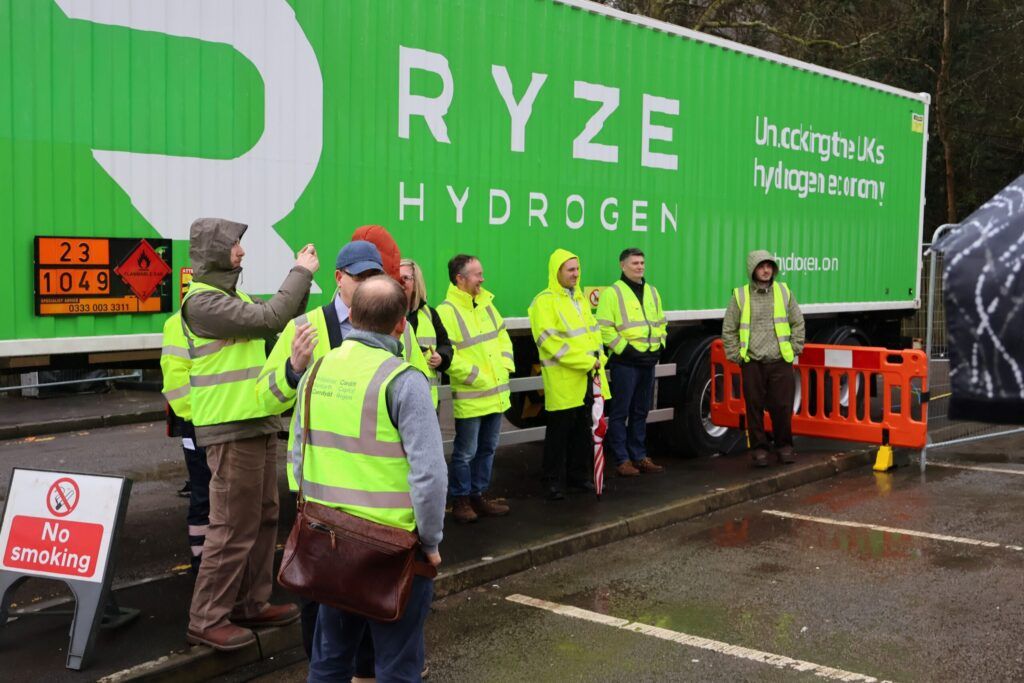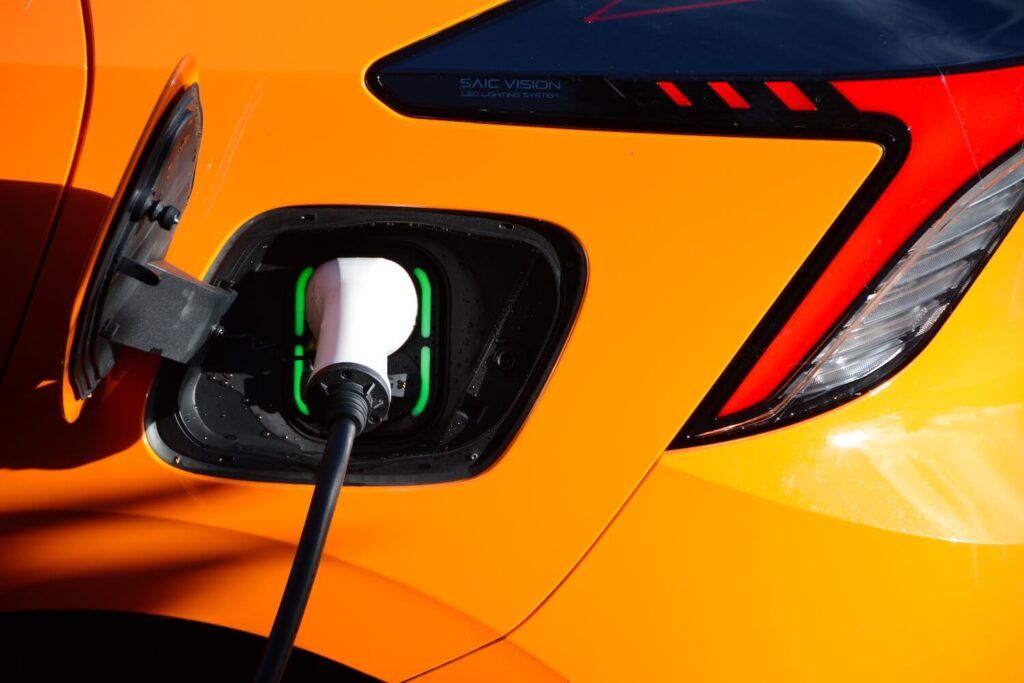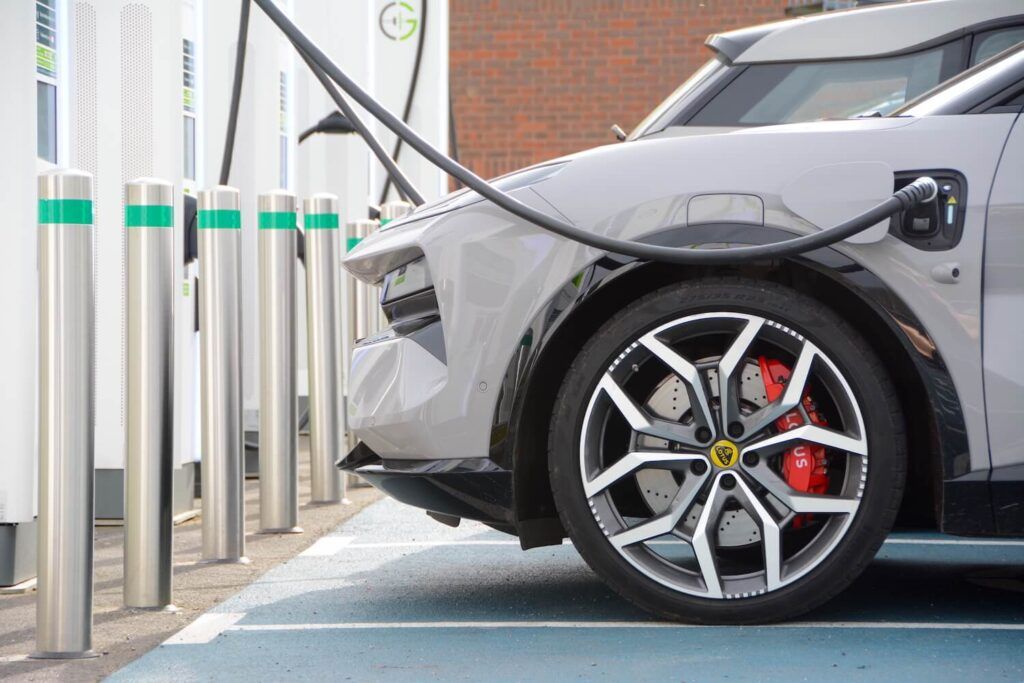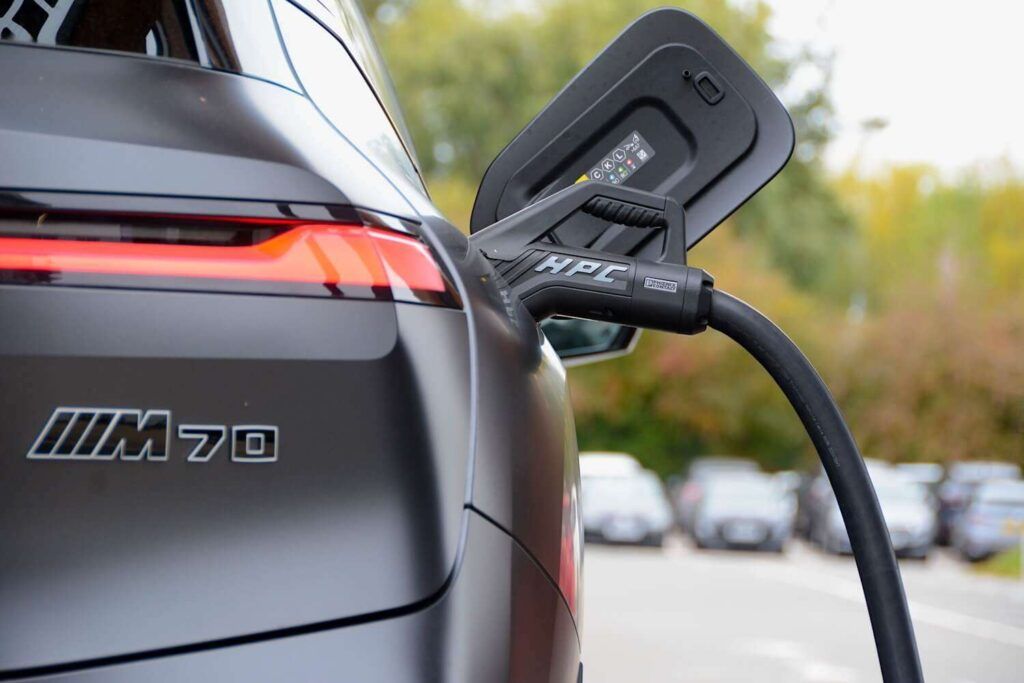Hundreds of thousands of extra charge points in the pipeline and world-leading regulations for new homes and buildings announced as Government pushes ahead with electric vehicle revolution.
New homes and buildings such as supermarkets and workplaces, as well as those undergoing major renovation, will be required to install electric vehicle charge points from next year, under new legislation announced by the Prime Minister, Boris Johnson.
Up to 145,000 extra charge points will be installed across England each year in the run up to 2030 when the sale of new petrol and diesel cars will end in the UK.
This builds on the over 250,000 home and workplace charge points the government has already supported to date.
With the majority of charging happening at home, this will mean people can buy new properties already ready for an electric vehicle future, while ensuring charge points are readily available at new shops and workplaces across the UK.
As well as new homes and non-residential buildings, those undergoing large-scale renovations, which leaves them with over 10 parking spaces, will be required to install electric vehicle charge points.
After consulting with industry, the Government will also be going further to make it easier and simpler for people to go electric, by introducing simpler ways to pay whilst travelling, such as contactless, at all new fast and rapid charge points.
This comes as the Prime Minister addresses the CBI annual conference, where he’ll set out how the UK can create a first mover advantage in the biggest transformation of the global economy in 200 years, if the public and private sectors work in partnership to seize the opportunities of net zero, from electric vehicles to clean power.
In his CBI speech, Prime Minister Boris Johnson is expected to say:
- This is a pivotal moment – we cannot go on as we are. We have to adapt our economy to the green industrial revolution
- We have to use our massive investment in science and technology and we have to raise our productivity and then we have to get out your way
- We must regulate less or better and take advantage of new freedoms.
He will add:
- We will require new homes and buildings to have EV charging points – with another 145,000 charging points to be installed thanks to these regulations
- We are investing in new projects to turn wind power into hydrogen and our net zero strategy is expected to trigger about £90 billion of private sector investment, driving the creation of high wage high skilled jobs as part of our mission to unite and level up across the country.
The Government has also announced today that following a successful pilot with businesses, Innovate UK will deliver a new three-year programme of £150m in new flexible and affordable Innovation Loans to help British SMEs commercialise their latest R&D innovations. This programme supports businesses to grow, scale up and create new highly-skilled jobs in the process, including those who would have otherwise been unable to secure private loans.
Whilst this is open to a variety of sectors, green businesses will be able to apply from early next year, many of whom have already been benefiting during the pilot as the UK transitions to net zero.
For example, Northern Ireland based Catagen Ltd’s development of catalytic converters has helped vehicle manufacturers to reduce emissions. NanoSUN Ltd – a company based in Lancaster – develops and manufactures hydrogen refuelling products for customers in the oil and gas and transport sectors, with the support of the innovation loan helping them triple the number of high-skilled engineers they employ and prototype and demonstrate their products.
Thanks to innovation loans, 70% of surveyed businesses who were part of the pilot are now also offering customers greener alternatives to their existing products.
The Government has also confirmed today nearly £10 million in funding for a first-of-a-kind new hydrogen project in the UK’s largest onshore windfarm near Glasgow.
£9.4 million will be invested into the Whitelee green hydrogen project to develop the UK’s largest electrolyser, a system which converts water into hydrogen gas as a way to store energy and supply local transport providers with zero-carbon fuel.
Developed by ITM Power and BOC, with ScottishPower, it has the potential to store and produce the equivalent of enough green hydrogen to fuel over 200 bus journeys travelling between Glasgow and Edinburgh each day.
Industry reaction:
Gill Nowell, Head of EV, LV= General Insurance and ElectriX, said: “Customers sit at the heart of the drive towards electric car uptake. We welcome the Government’s pledge to ensure that all new homes, supermarkets and workplaces must have charging provision. We must ensure that the chargers are designed and installed with all drivers in mind, that all drivers feel safe whilst charging their car, and that they work, are easy to use, and are fit for purpose – it’s no good having a really slow rate of charger installed in a supermarket where someone is only stopping for half an hour, for example. We’re at a pivotal moment in electric car history. Let’s get it right from this moment forward, and bring everyone along with us on the road to getting an electric car.”
Ross Easton, Director of External Affairs at Energy Networks Association, said: “This is great news for those living in new homes, but we must make sure access to charging points is not exclusive – charging points must be accessible to everyone. To truly ‘level up’ charging point access and deliver on the COP26 electric vehicle pledges requires strategic planning at all levels of government, nationally and locally.”
Nigel Pocklington, CEO of Good Energy, said: “This is good news: making it simpler and easier to charge and pay is the big challenge in the electric vehicle transition. It is vital we move at pace to ensure EVs can play a central role in enabling a fully flexible, decentralised system.”
Patrick Reich, co-founder of Bonnet comments: “New laws to make sure all homes in England have electric car chargers shows a real commitment by the government to make sure the country will be ready for the 2030 petrol and diesel vehicle ban.
“While this announcement to accelerate the roll out of private chargepoints is good, it will only go so far. Around 40 per cent of UK households don’t have a private driveway so rely on public chargepoints to be able to charge and drive. Improving the accessibility and availability of public charging provision – in urban areas particularly – is a priority if EVs are to become genuinely accessible, and the government’s call for simpler payments is one we absolutely back.
“The strategic placement of chargepoints at popular locations such as supermarkets and workplaces will help improve reduce charging anxiety – which we identify as a key barrier, not ‘range anxiety’. Government and business need to collaborate and invest in improved infrastructure and technology to make sure consumers feel as comfortable as possible when making the switch.”
Peter Emery, CEO of Electricity North West, said: “We welcome the Government’s decision to fit all new homes and buildings with electric vehicle charging points from 2022.
“Our forecasts show that in the next decade there will be a million electric vehicles on the North West’s roads, compared to just 12,000 today. We’re leading the way to Net Zero by investing more than £1.6bn in the region’s power network to meet that increasing electricity demand and enable people to make the switch.
“The recent COP26 event shone a spotlight on the scale of the challenge ahead and the impact on all communities. From a North West perspective, our network is in good shape to enable people to move away from fossil fuels to low carbon electricity for transport and heating.”
Energy UK’s Chief Executive, Emma Pinchbeck said: “We welcome today’s announcement as something we have long called for. It’s clearly the right move to ensure that new homes and offices are fit for our low carbon future, which includes the installation of electric vehicle chargepoints at the time of construction rather than afterwards. So it’s of equal importance that new builds should also be required to meet high standards of energy efficiency as soon as possible – rather than by 2025 as is currently proposed.”
Image: Shutterstock












